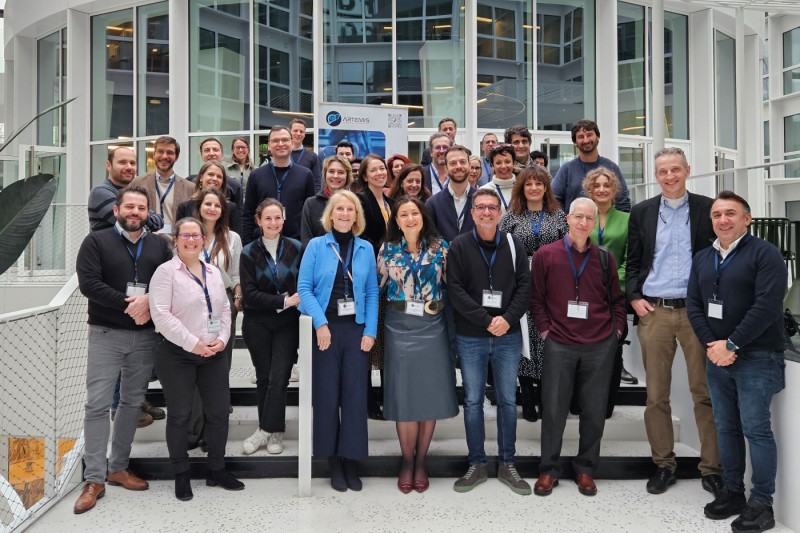A €10 million research project is exploring how digital duplicates called ‘virtual twins’ could help in managing and treating metabolic associated fatty liver disease (MAFLD).
MAFLD is the leading cause of chronic liver disease in Europe, surpassing viral hepatitis and alcohol-related causes. It can also play a role in the development and progression of cardiovascular disease.
Bournemouth University is one of the partners on ARTEMIs, a four-year research project funded by the European Union’s Horizon programme.
The project will explore how ‘virtual twins’ – digital duplicates of the liver, heart and other organs – can be used to track the development of the disease, leading to better and more personalised diagnosis and management of the condition.
This could help enable early detection of the disease, better prediction of the disease’s progression and more effective management of MAFLD and associated conditions.
22 institutions from across Europe and beyond – ranging from hospitals to SMEs, academic partners and a patients’ association – are working together on the project.
Experts in data science and medical imaging at Bournemouth University are developing AI-based digital tools to support the digitisation and personalisation of the virtual twins.
“Through AI, we will investigate various clinical questions such as the progression of liver disease in MASLD patients and cardiovascular complications,” said Professor Hamid Bouchachia, Professor in Data Science and Intelligent Systems, who is the principal investigator for BU
“We will also develop the machine learning and AI tools to recognise and analyse patterns in patients and related factors, using data from various sources – including clinical data, imaging, and biological molecules.
“The outcome of such investigations will be integrated in a multi-scale computational virtual twin to facilitate the diagnosis and management of patients with MALFD. Such research will undoubtedly benefit patients suffering from this prevalent disease.”
To find out more about the project, please visit: www.bournemouth.ac.uk/ARTEMIS
 The ARTEMIs project consortium
The ARTEMIs project consortium










 SPROUT: From Sustainable Research to Sustainable Research Lives
SPROUT: From Sustainable Research to Sustainable Research Lives BRIAN upgrade and new look
BRIAN upgrade and new look Seeing the fruits of your labour in Bangladesh
Seeing the fruits of your labour in Bangladesh Exploring Embodied Research: Body Map Storytelling Workshop & Research Seminar
Exploring Embodied Research: Body Map Storytelling Workshop & Research Seminar Marking a Milestone: The Swash Channel Wreck Book Launch
Marking a Milestone: The Swash Channel Wreck Book Launch ECR Funding Open Call: Research Culture & Community Grant – Application Deadline Friday 12 December
ECR Funding Open Call: Research Culture & Community Grant – Application Deadline Friday 12 December MSCA Postdoctoral Fellowships 2025 Call
MSCA Postdoctoral Fellowships 2025 Call ERC Advanced Grant 2025 Webinar
ERC Advanced Grant 2025 Webinar Update on UKRO services
Update on UKRO services European research project exploring use of ‘virtual twins’ to better manage metabolic associated fatty liver disease
European research project exploring use of ‘virtual twins’ to better manage metabolic associated fatty liver disease